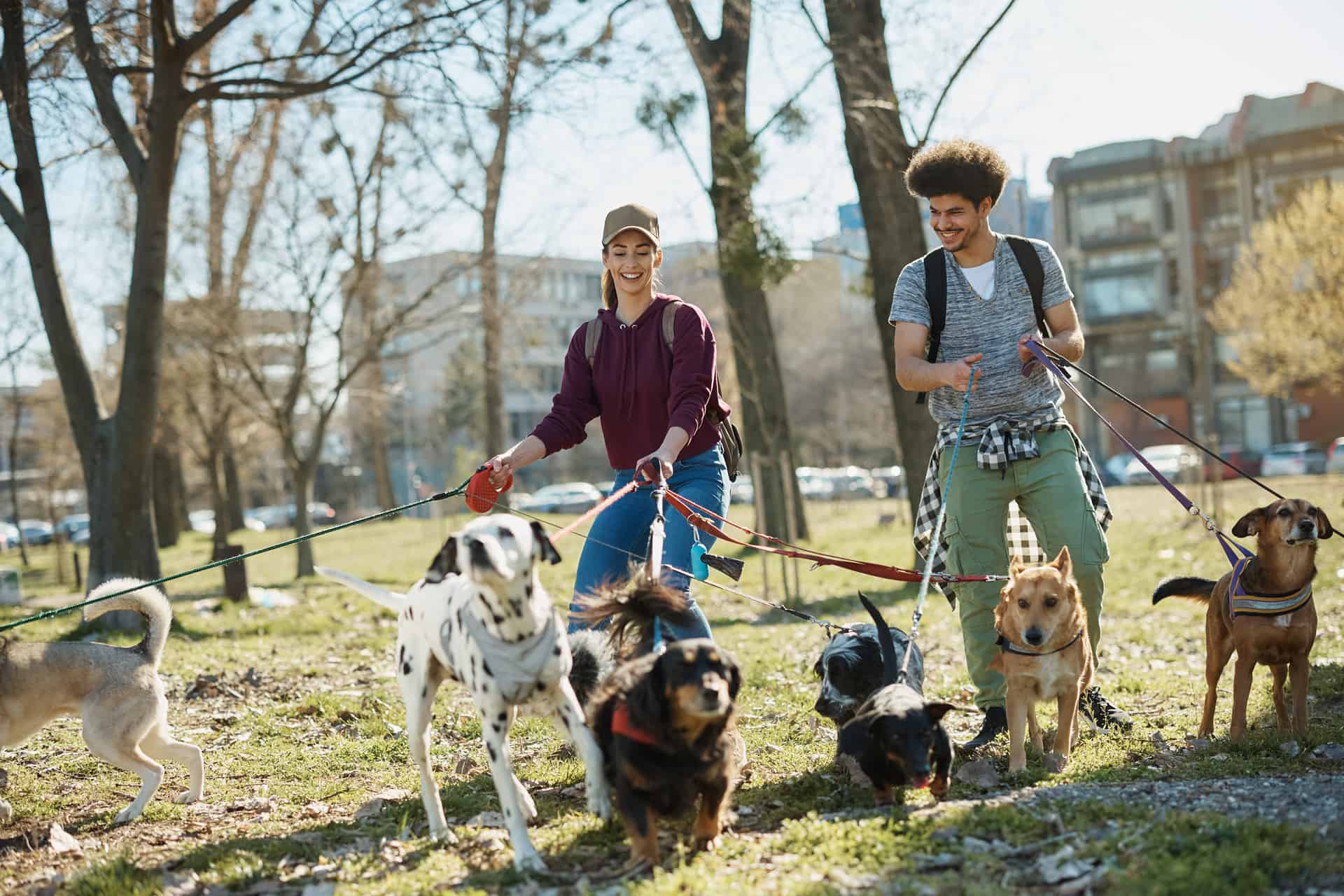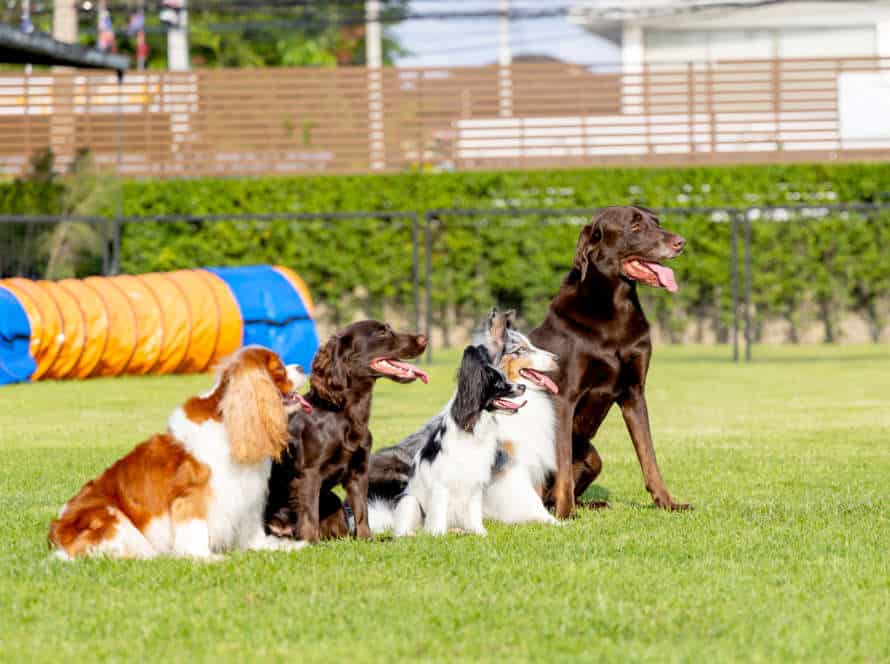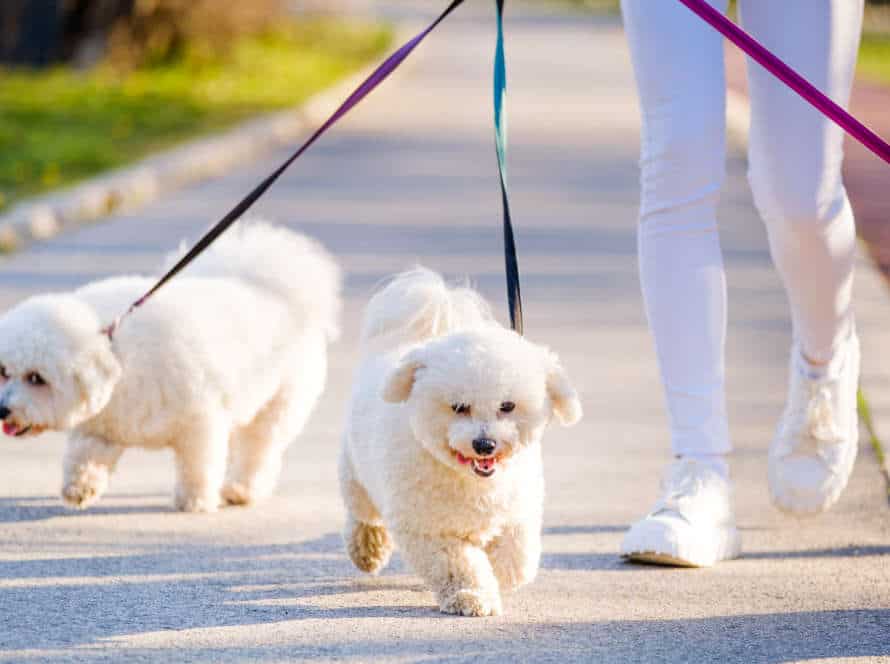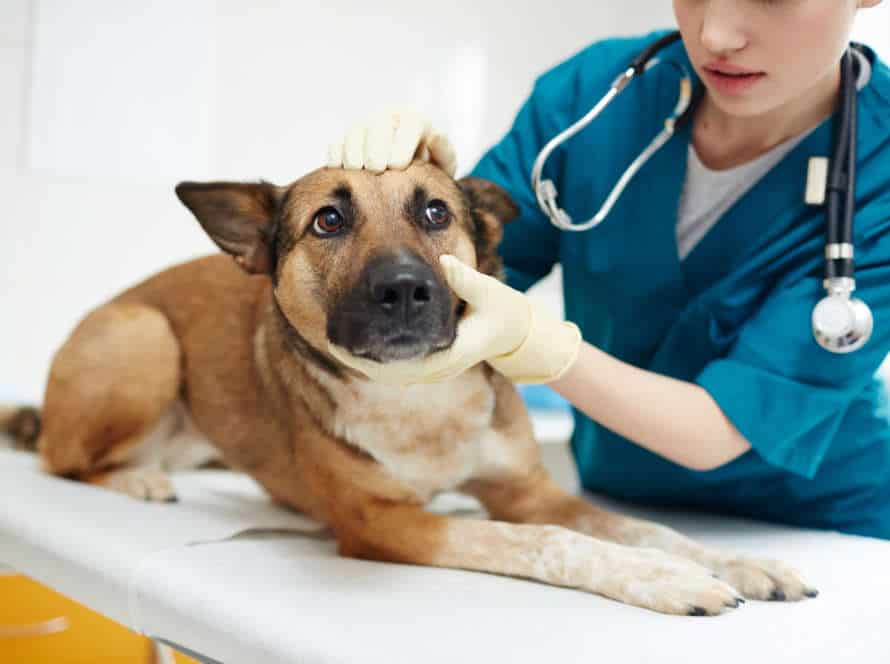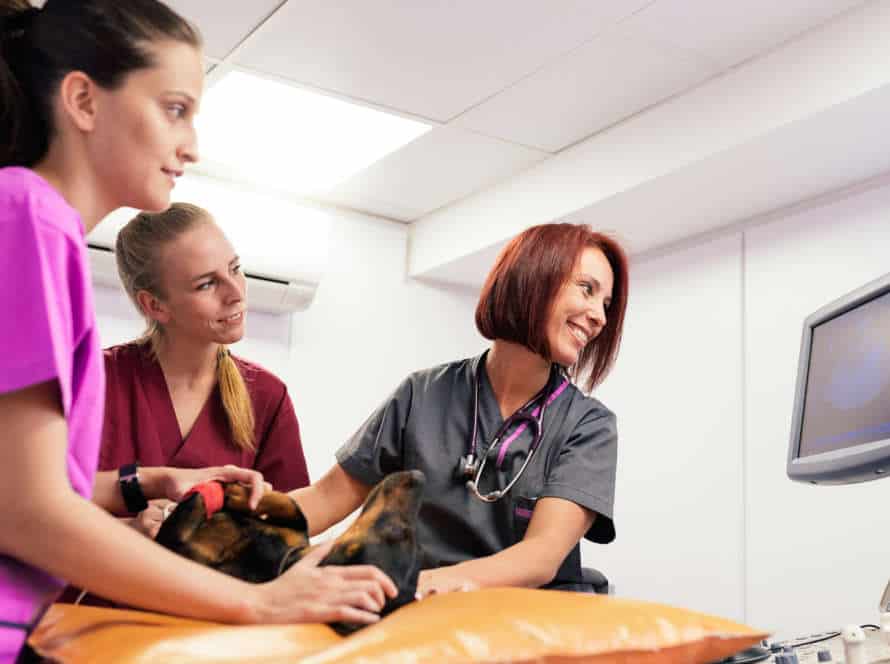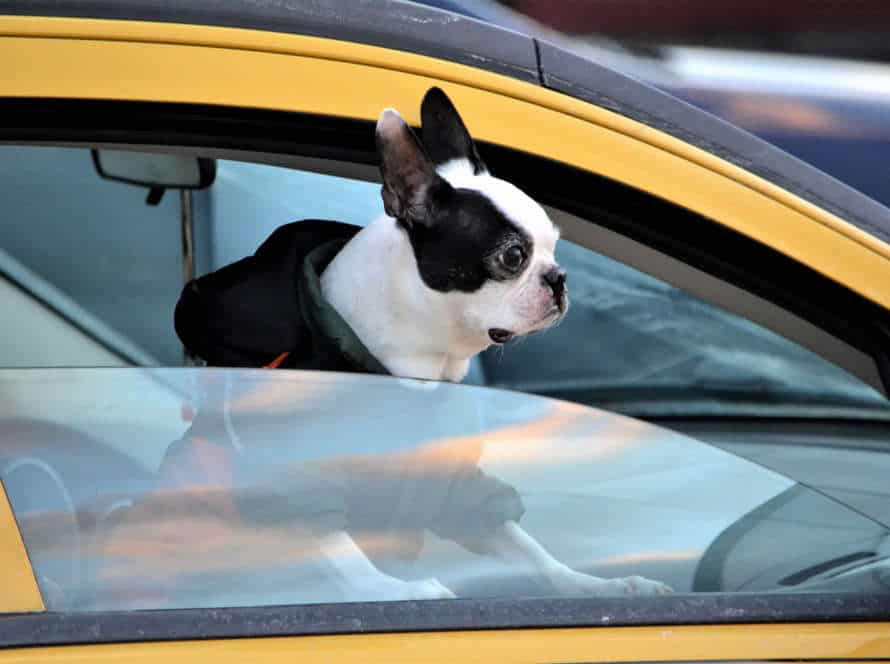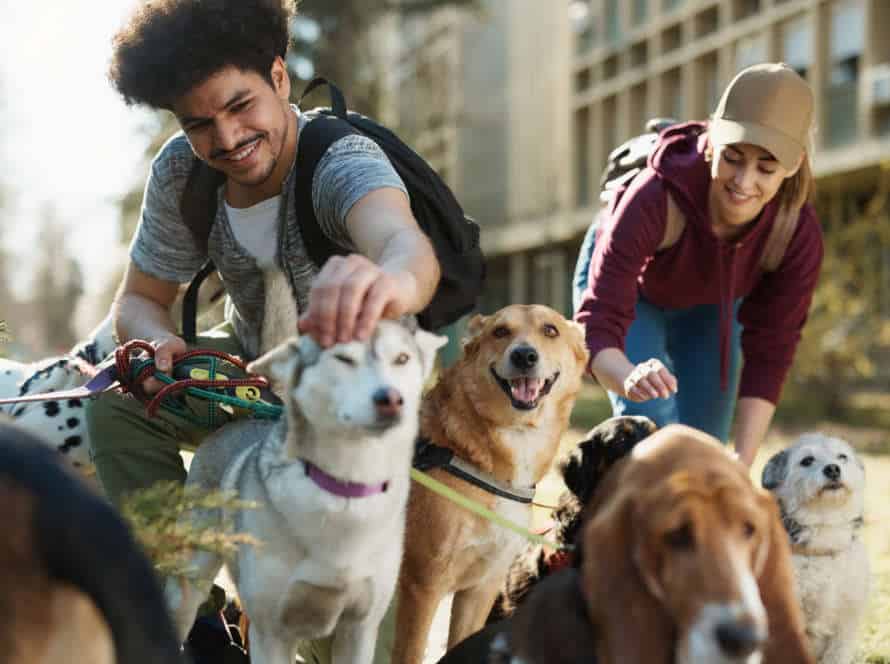The Role of Socialization in Training Success
Socializing your pup is crucial for training success. It shapes their behavior and personality from an early age. The best time to start is between 3-14 weeks old. Positive experiences can lead to confident, well-adjusted dogs who are more open to training.
No socialization can cause fear, aggression and anxiety, making training difficult.
Introduce your pup to other dogs, people, environments, sights, sounds and smells in a positive way. For older dogs, take it slow and help them overcome fears – use positive reinforcement.
Pro Tip: If your dog is anxious or scared during socialization, seek help from a pro dog trainer.
Understanding Socialization in Dogs
Socialization is vital to training a pup. It helps them to become confident, adult dogs. If a puppy isn’t socialized correctly, they can have behavioural issues and be harder to train. Understanding the role of socialization in training sets pups up to have the best life.
What is Socialization?
Socialization is the process of introducing your dog to different stimuli like people, animals, noises, and environmental factors. It helps them develop social skills and adapt to new situations. It’s vital for having a well-rounded, confident, and obedient pup.
It helps them conquer fear, aggression, and anxiety towards strangers, other creatures, and new surroundings. It also plays a big role in training success. A socialized pup is simpler to train as they are more relaxed in diverse settings.
Socializing your dog should start early and continue for life. Expose them to various circumstances gradually and always observe their reactions. This will let you address any issues quickly. Socializing your pup will make them healthier, happier, and better-behaved.
Importance of Socialization for Dogs
Socialization is key for a well-behaved, well-adjusted pup.
Expose your pup to many people, animals and environments to help them feel calm and secure.
Socialization is essential for training success. It helps build confidence and resilience in strange situations, reduces aggression and anxiety, and even boosts their instincts.
Start socializing as early as possible. Introduce puppies to a range of people, animals and environments. Make sure the experiences are positive and non-threatening.
Positive reinforcement is important too. Reward good behaviour to support socialization.
In conclusion, socialization is a must for your pup’s wellbeing, temperament and training success. Responsible owners ensure their pup is well socialized.
Socialization time for Puppies vs. Adult Dogs
Socialization is a must for both puppies and adult dogs. The approach varies, however, based on age and temperament.
Puppies need exposure to people, animals, and new environments between 3-14 weeks to create positive associations and gain social skills. Gradual introductions to stimuli prevent fear and anxiety.
Adult dogs need time to build trust and may take longer to adjust to new situations. Positive reinforcement with rewards and praise helps them engage in social activities and reduce stress. Gradual exposure to stimuli is essential to prevent overwhelming them.
Regardless of age, socialization is key for training success and overall health. Owners should commit time to interact and expose their pooches to different things.
Pro Tip: Consult a professional dog trainer to create a plan suited to your pup’s age, breed, and personality traits.
Socialization Techniques for Training Success
Socialization is essential for a successful training process. It is how learners learn the norms, values, and behavior expected of them. Trainers can utilize a range of socialization techniques to make sure learners gain the skills needed to finish tasks safely and efficiently.
In this article, let’s explore the various socialization techniques that can enhance training progress.
Exposure to Different Stimuli
Expose your pet to different stimuli. It’s a key technique for successful training. Socialization is introducing your pet to new experiences, people and environments. That plays a huge role in making them well-behaved, self-assured and content.
Here are some stimuli you can expose them to:
- People – adults, children, men, women, different appearances, disabilities.
- Sounds – alarms, sirens, fireworks, thunder, music, clapping, doorbells, vacuum cleaner, etc.
- Smells – different foods, perfumes, essential oils, animals, etc.
- Surfaces – hardwood, carpet, gravel, grass, sand, tile, etc.
- Environments – parks, beaches, pet stores, car rides, public places, etc.
Exposing your pet to various stimuli helps them get used to new experiences. It also helps them to form positive associations and boosts their confidence and adaptability.
Noise
Too much noise can interfere with socialization techniques while training dogs, making it harder to teach them. Dogs depend on their hearing, so loud noises can cause them to be confused, worried, or even angry. Here are some tips to stop sound distractions during dog training:
- Find a quiet spot indoors or outside with a fence and low noise.
- If you have to train in a busy place like a dog park or near a street, use earplugs for dogs.
- Start with soft sound and slowly make it louder so your dog gets used to it.
Keeping noise levels low helps your dog stay focused and makes it easier to socialize and train them.
People
Two people involved in dog training? Great idea!
Why?
- It provides a more controlled and consistent experience for the pup.
- Plus, one can focus on training while the other manages the dog’s behavior.
- This offers a chance to introduce new and unfamiliar situations in a safe way.
- It helps the pup build confidence, trust, and reduce anxiety.
In conclusion – two people involved in socialization and training increase the chances for success!
Other Dogs and Animals
Socializing your pup is key for training success. When introducing them to other animals, you must use the proper techniques for a safe and positive experience. Here are 3 tips to help:
- Introduce dogs one at a time. Start on neutral territory. Increase the number and duration of meetings gradually.
- Supervise playtime. Use positive reinforcement and redirect any negative behavior.
- Follow the right procedures. Let them sniff each other from a distance. If there’s no aggression or fear, let them interact briefly while on leashes. Increase the duration of meet-ups as they become more comfortable.
Pro tip: Consistency is a must throughout the socialization process. Remain patient and use positive reinforcement to encourage good behavior.
Basic Commands and Obedience Training
Basic commands and obedience training are must-haves for a dog’s safety, comfort, and happiness. Socialization is equally important for successful training. Here are some techniques to try:
- Introduce your pup to new smells, environments, people, and animals slowly. Reinforce good behavior at each step.
- Encourage exploration and learning through play and social interaction with other pups.
- Use obedience training to build your pup’s confidence and trust.
- Consistency and patience are the keys to success. Practice regularly to see results.
Pro Tip: Get started with socialization and basic obedience training when your pup is 8-16 weeks old. This is the critical period for learning.
Sit and Stay
“Sit & Stay” is a great way to train your pup. It can drastically improve their behavior. Here’s how:
- Show them a treat, then move it over their head. Their bum should lower onto the ground.
- With them in the ‘sit’ position, take one step back, then hold up your hand and say ‘stay’.
- Each time they stay, give praise and a treat. Start with shorter times & build it up.
- With lots of practice, they’ll be a well-trained pooch!
Come
Training success starts with the “Come” command! Here’s how to do it:
- Begin indoors or in a peaceful outdoor space with limited distractions.
- Attach a leash and stand a few feet from your pup.
- Say “Come” with clarity & enthusiasm.
- Use treats or toys to motivate your pup to come to you.
- When pup reaches you, praise and reward them.
- Repeat the process, slowly increasing the distance and distractions.
- Practice every day until pup always responds to “Come“.
This command is key for socialization training! It helps keep your pup safe & helps them learn successfully.
Leash walking
Leash walking is a must for socialization training in dogs. Here are some tips to help you out:
- Introduce the leash gradually. This helps dogs get used to it and feel comfortable with leash walking.
- Practice in a calm and secluded environment. This way they can focus on being calm and training.
- Keep treats handy for rewards. It will incentivize positive behavior.
Socializing your pup with a leash helps make them well-behaved and confident. Plus, it strengthens the bond between you and your furry friend.
Training Programs with Structured Socialization
Training programs need structured socialization for success. This creates a good learning environment, boosts confidence and encourages involvement.
To include socialization techniques:
- Team-building exercises and icebreakers to promote rapport.
- Mentoring and coaching for individual guidance.
- Group activities and discussions to improve communication and thinking.
Recognizing the role of socialization is important. It makes learning better and builds a sense of community. Socialization techniques help with long-term success and better knowledge retention.
Puppy Kindergarten
Puppy Kindergarten helps young pups learn obedience and proper socialization. It’s a fun and safe place for puppies to mingle and pick up good habits. Techniques used include:
- Positive Reinforcement – treats, toys and praise given when the pup behaves.
- Controlled Exposure – puppies get to see new sights and sounds, to become more confident in new surroundings.
- Playtime – supervised playtime with other puppies, teaching appropriate socialization.
- Basic Obedience Training – commands like sit, stay and come help to form good habits.
Puppy Kindergarten is key to a well-behaved and happy dog. Early socialization sets the foundation.
Group Classes
Group classes are a great way to help dogs learn. They offer a structured learning environment. Dogs learn tricks like sitting, staying, coming, and heel-ing. Plus, they learn how to stay calm around other dogs and people. This helps when dogs are in busy parks or cafes.
Group classes also boost confidence, provide mental stimulation, and reduce stress. People can also share ideas and see the benefits of socializing their pet. Socialization is essential for success, and group classes give puppies a chance to practice and meet new creatures.
Pro tip: When selecting a group class, pick a certified and experienced trainer. It will make a big difference in your pup’s learning.
Daycare services
Daycare services can be an amazing way to get your pup sociable and boost their behavior and training progress. Here are the top benefits:
- Socializing: Dogs are social creatures and need time with other dogs and humans to learn how to socialize properly.
- Working Out: Daycare services let doggies play and move around, burning off energy that can cause destruction when left at home alone.
- Training: Many daycare facilities provide training services to help with obedience and behavior.
Pro Tip: Before deciding on a daycare, research and look at reviews from other pup parents. Make sure the daycare is safe, fun, and clean. Also, ensure your dog is up-to-date on all vaccinations prior to enrolling them in daycare.
Common Problems with Socialization
Socialization is a must for successful training. If an animal lacks proper socialization, it could lead to fear, shyness, and aggression when faced with unfamiliar situations. Let us delve deeper into these issues, and discuss how to avoid and manage them.
Aggression towards Humans
Aggression in dogs towards humans is a serious and dangerous issue. It impedes their social integration. Reasons can vary, such as a traumatic experience, poor socialization or lack of training.
Socializing your dog from an early age is key to preventing aggression. Why? Because it helps the dog adapt to new environments and learn how to interact with people and other animals. Plus, it boosts their confidence which lowers fear and aggression.
Socializing aggressive dogs is hard, but not impossible. Requires time, patience and expert help from a trainer or behaviorist. If your dog shows aggression, take immediate action before it worsens.
Pro tip: Don’t punish the dog. Instead, get help from a professional trainer who uses positive reinforcement techniques to retrain the dog’s behaviour.
Fear of Certain Situations or People
Fear of certain circumstances or people is a normal problem when it comes to socialization. Socializing your dog is key for training success. It helps them adapt to different surroundings, people, and animals. Though, some dogs may feel scared in some scenarios. This makes socializing them hard.
Common fears include loud sounds, people or animals they don’t know, and strange objects. As a result, they may act aggressively like growling, biting, and snapping.
To deal with their fear-based behaviors, it’s best to do a desensitization process slowly. Introduce your dog in a positive and controlled way to the situation making them anxious. If you can’t do this, look for professional help. Patience and positive reinforcement are the secrets to successful socialization.
Aggression towards Other Animals
Aggression toward other animals can be a sign of unsuccessful socialization in dogs. Socializing is key for successful dog training. Common problems with socializing include:
- Lack of interaction with other animals during the important 2 to 14 weeks old stage
- Negative experiences or aggression from other animals during socializing
- Limited range of situations or animals exposed to the dog.
The role of socializing in training success is very important. It shapes the dog’s behavior and temperament, teaching them what is OK and not. Without proper socialization, dogs may act aggressively towards other animals or humans. So, early and consistent socializing is essential to shape your dog’s behavior and ensure successful training outcomes.
Pro tip: Consult a professional dog trainer or behaviorist if you are having aggression issues with your dog or need help socializing your pet.
Socialization for Specific Dog Breeds
Socialization is a must for any pup! But, it is especially important when training certain breeds. These breeds have a genetic predisposition to fear, aggression and anxiety. Early socialization helps them grow into calm, confident dogs. Here, we’ll explore how socialization can help certain dog breeds succeed in their training.
Working Breeds
Working dog breeds have a strong work ethic and need physical activity and mental stimulation. Socialization plays a crucial role in training success for these breeds. It helps them become positive and not aggressive or overly protective.
Popular Working Breeds:
- German Shepherds: Versatile, trainable. Early socialization to stop aggression towards strangers.
- Siberian Huskies: Friendly, outgoing. Early socialization to lower prey drive to small animals.
- Rottweilers: Loyal and protective. Early socialization to stop them from being territorial or aggressive towards other dogs.
- Boxers: Energetic, playful. Early socialization to stop them from jumping on people and being too lively.
- Bernese Mountain Dogs: Friendly, good with children. Early socialization to reduce shyness or nervousness around new people and situations.
Socialization is key. Start early and keep doing it throughout their life. It helps them succeed in training.
Companion Breeds
Companion breeds are those that humans have bred for companionship. Poodles, yorkies, and chihuahuas are some examples.
Socialization is a must for companion breeds. They love being around people and should be socialized from a young age. This will help them make positive associations with people, animals, and new environments.
If you own a companion breed, make sure to give them plenty of socialization. Puppy classes, meeting new people, and going to different places like parks, buildings, and streets can help.
With proper socialization, your companion dog can be well-behaved and happy. They’ll be able to interact positively with others.
Sporting Breeds
Socialization is a must for dog training, especially for sporting breeds. It teaches dogs to act positively around others, like animals and people, as well as new situations. Without socialization, aggression & anxiety may occur, which makes training tricky and results in less success.
Here’s how to socialize sporting breeds:
- Take them on lots of walks to different places, like parks, beaches, and hiking trails. This helps them to experience different sights, sounds, & smells.
- Create chances for your pup to meet other dogs and people of all ages. Socialization can happen in dog parks, obedience classes, & more. Gently introduce them to other dogs, & never push if they’re not comfy.
- Give rewards when they do good during socialization. This could be treats, praise, or toys. This links socialization with good stuff.
Pro Tip: Consistency is key when socializing your dog. Begin socializing early & make it part of your pup’s routine. Always supervise, & never let them off a leash during socialization unless in enclosed areas.
Conclusion: The Benefits of Proper Socialization for Training Success.
Socializing your pet is a must for training success. It helps them get along with animals and humans, reducing fear, aggression and anxiety. This has huge impacts on training: better obedience, more confidence, better communication. In the end, it leads to a better life for you and your pet, plus better training results!
Frequently Asked Questions
Q: What is socialization?
A: Socialization refers to the process by which individuals acquire the attitudes, values, beliefs, and behavior patterns of their social group.
Q: How does socialization affect training success?
A: Socialization can greatly impact training success as it influences how individuals approach learning and interactions with trainers and peers. Those who are socialized to value learning, collaboration, and feedback are more likely to be successful in training.
Q: What role do trainers play in socialization?
A: Trainers play an important role in socialization as they are responsible for creating a learning environment that fosters positive attitudes towards learning and constructive feedback. Trainers also serve as role models for learners and can shape their attitudes and behavior patterns.
Q: Can socialization hinder training success?
A: Yes, socialization can hinder training success if individuals have learned negative attitudes or behavior patterns that are not conducive to a positive learning environment. For example, individuals who are socialized to avoid risk-taking or who are resistant to feedback may struggle in learning environments that require these skills.
Q: How can socialization be improved in training environments?
A: Socialization can be improved in training environments by creating a culture of learning, collaboration, and feedback. Trainers can also provide opportunities for learners to interact with each other and model positive behavior patterns.
Q: Is socialization a lifelong process?
A: Yes, socialization is a lifelong process that continues throughout an individual’s life. As individuals interact with different social groups and acquire new experiences, their attitudes, values, and behavior patterns can change and evolve.

